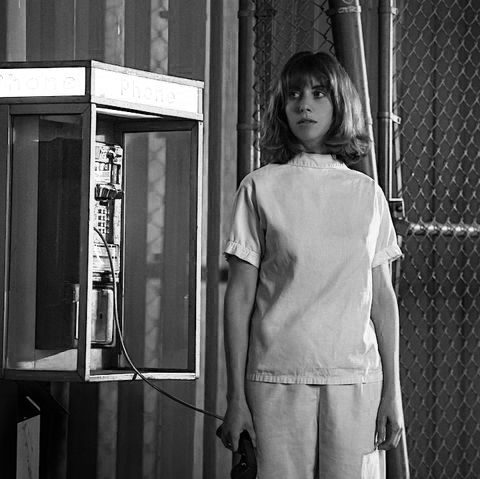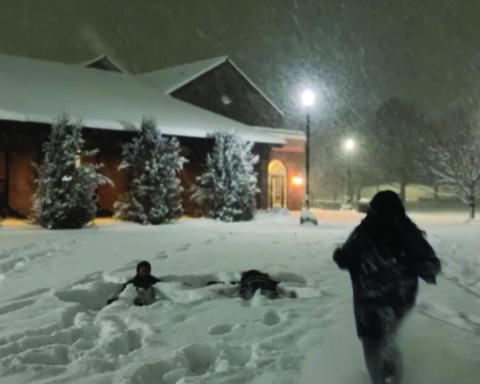By Matthew Villanueva, Features-Assignment Editor
Premiering last month at Sundance Film Festival, “Horse Girl” made its universal launch on Netflix on Feb. 7. Alison Brie makes her screenwriting debut in this memorable story about losing a grip on reality and psychotic depression.
The film opens with Sarah, portrayed by Brie, working at a craft store. She is comfortable with her coworkers but is noticeably awkward and introverted. After work, she visits her childhood-horse, Willow, despite the owner’s annoyance for her regular attendance.
When she is home, she manically watches her favorite show, “Purgatory,” usually while obsessively performing some sort of craft— sewing, making bracelets, lanyards or anklets. As she continues to brood in her loneliness, she is pestered by her roommate Nikki, played by Debby Ryan, to go out and meet new people.
After Sarah’s birthday plans fall through, and she is found on the couch making an anklet, Nikki invites over her boyfriend, Brian, and his roommate, Darren, played by Jake Picking and John Reynolds.
Sarah and Darren hit it off throughout the alcohol-induced night and Sarah wakes up on the floor with mysterious scratches on the wall as Darren comes back to pick up his car.
Thus far, the film seems like an apparent feature about a relatable and depressed introvert who loves her horse. But as the film rolls on, the viewer is taken into Sarah’s distorted reality, unsure about what is real and not.
From waking up in the middle of the street, to wacky dreams and losing her car, Sarah’s reality becomes wry with oddities and paranoia. She becomes convinced that she is a clone of her grandmother due to their similar appearance.
Sarah’s paranoia and jumbled reality begin to affect Nikki as she plasters their apartment with smoke, trying to promote good energy. Her confusion also affects her boss, played by Molly Shannon, as she appears at work naked, unaware of how she got there.
Following her bewildered work appearance, Sarah finds herself in a mental institution. As she begins to fall asleep, the viewer is taken into an absurd dream sequence with set changes as wacky as the 2004 classic, “Eternal Sunshine of a Spotless Mind.” Characters slip in and out as quickly as internet memes. As Sarah wakes up, she realizes she is in her roommate’s bed in the hospital.
Sarah is discharged after three days despite her only thinking it was one night. As her psychologist asks her what is next, Sarah replies, “I know what I have to do.” The movie concluding with a bewildering final sequence leaving the audience questioning whether or not to believe her reality.
To go with the haunting storyline is an eerie original soundtrack by Josiah Steinbrick and Jeremy Zuckermann.
In Brie’s screenwriting debut, she provides an intimate glimpse into the unfortunate views of those struggling with psychotic depression. Coupled with the brilliant directing and cinematography from Jeff Baena, the audience is put through an hour and 40 minutes of confused empathy for Sarah.
villanjv18@bonaventure.edu









